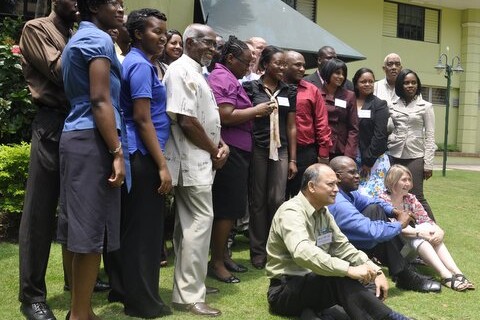On the 29th February a group of Caribbean journalists from 11 nations took part in our three day investigative journalism workshop in Kingston, Jamaica, hosted by the Creative Production and Training Centre (CPTC).
The advanced training was designed to sharpen their investigative skills and better equip them to defend the democratic principles of their various island states in the digital age.
The training, supported by UNESCO’s Caribbean Cluster office and Public Media Alliance, was a huge success and participants felt that the data training really hit home. As a result participants felt they were better equipped to deal with new ways of investigative reporting using the latest digital platforms.
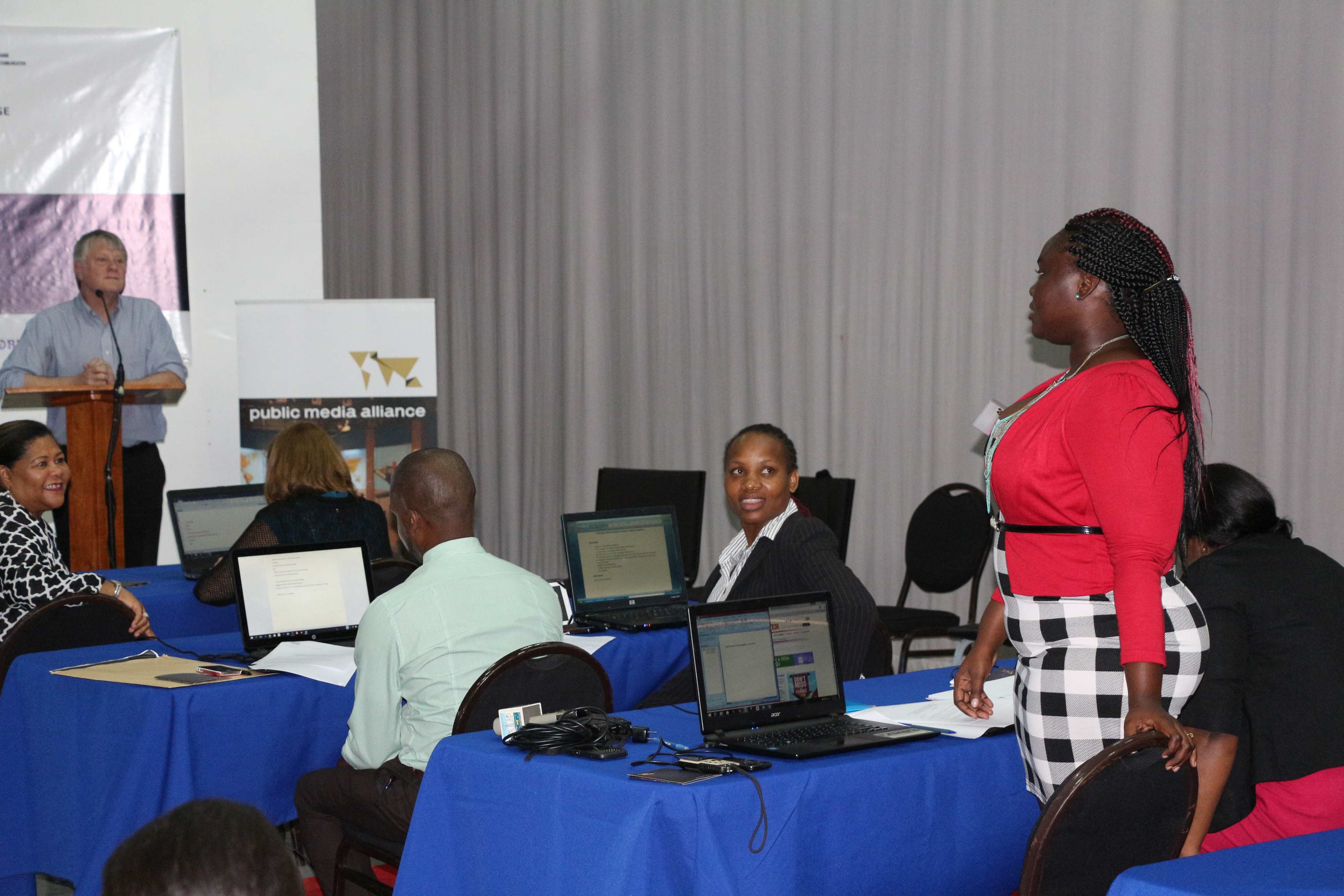
Speaking at the launch of the 3-day workshop, UNESCO’s Caribbean Communication and Information officer, Isabel Viera, said that “journalists are charged to uphold the rights of freedom of the press and freedom of information as they are the foundations for protecting all other human rights”.
“journalists are charged to uphold the rights of freedom of the press”
“The role media can play as a watch dog is important for democracy and it is for this reason that UNESCO fully supports initiatives like this Caribbean workshop that can enhance the capacity building of investigative journalist throughout the world. At a time of a widening information communications ecosystem, Journalists today need to clearly show added value to the public interest. In this light credible investigative stories like the kind that will be explored in this workshop are increasingly essential,” she said.
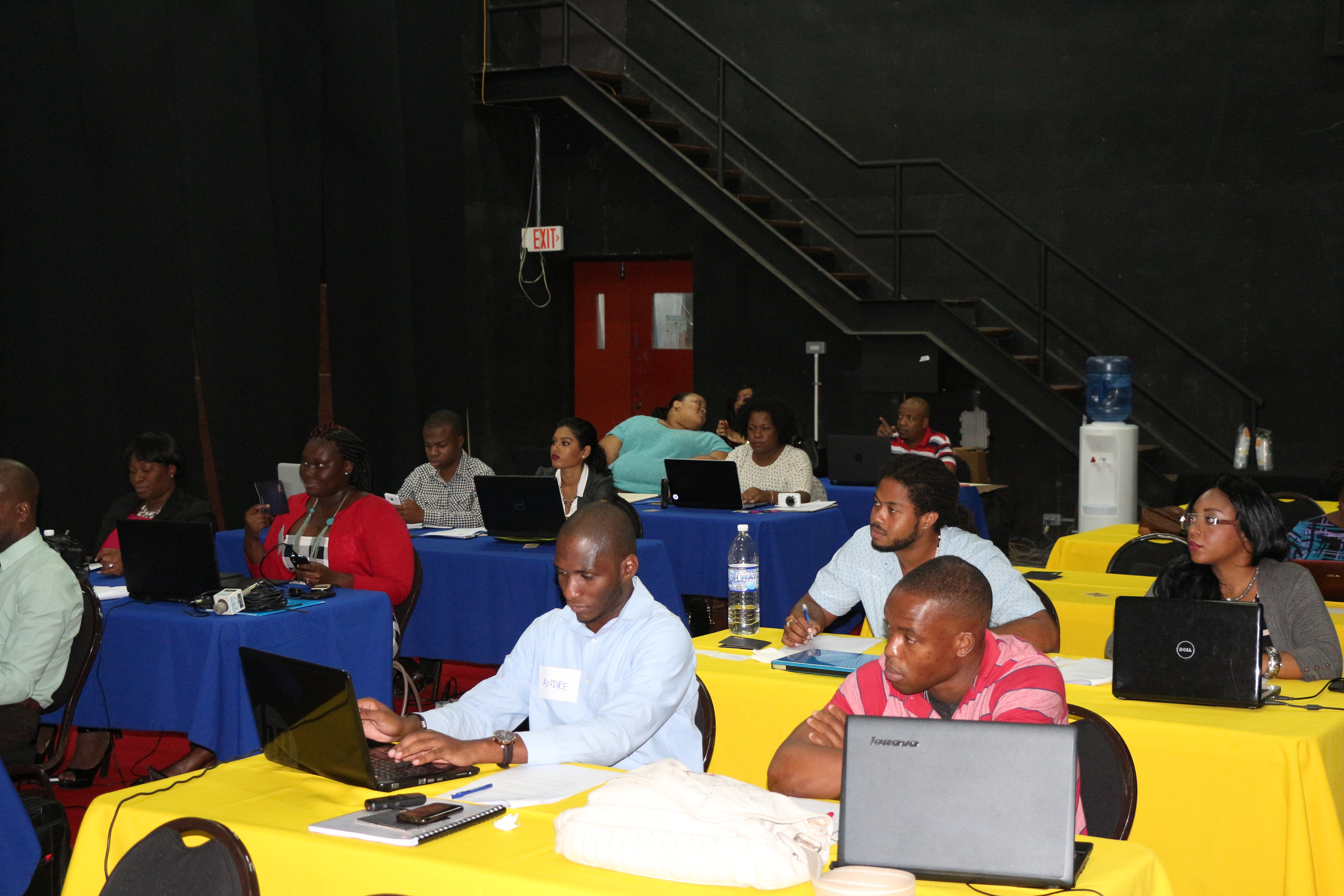 Dr Marcia Forbes a media & communications specialist said in her opening remarks that “Investigative journalism, by definition, goes further than conventional news reporting and carries a great deal of legal risk. It seeks to shine a light on social plights, influence social policy and trigger change”
Dr Marcia Forbes a media & communications specialist said in her opening remarks that “Investigative journalism, by definition, goes further than conventional news reporting and carries a great deal of legal risk. It seeks to shine a light on social plights, influence social policy and trigger change”
“The role that media can play as a watchdog is indispensable for democracy”
The training, which was chiefly delivered by Professor Brant Houston, the John S. and James L. Knight Foundation Chair in Investigative and Enterprise Reporting at the University of Illinois, focussed on best practices in the use of data and digital tools to uncover stories that can be a catalyst for social change.
“The role that media can play as a watchdog is indispensable for democracy”
Steffon Campbell, a lecturer at the Caribbean Institute of Media and Communication (CARIMAC) at the University of the West Indies, also served as a facilitator for the training workshop.
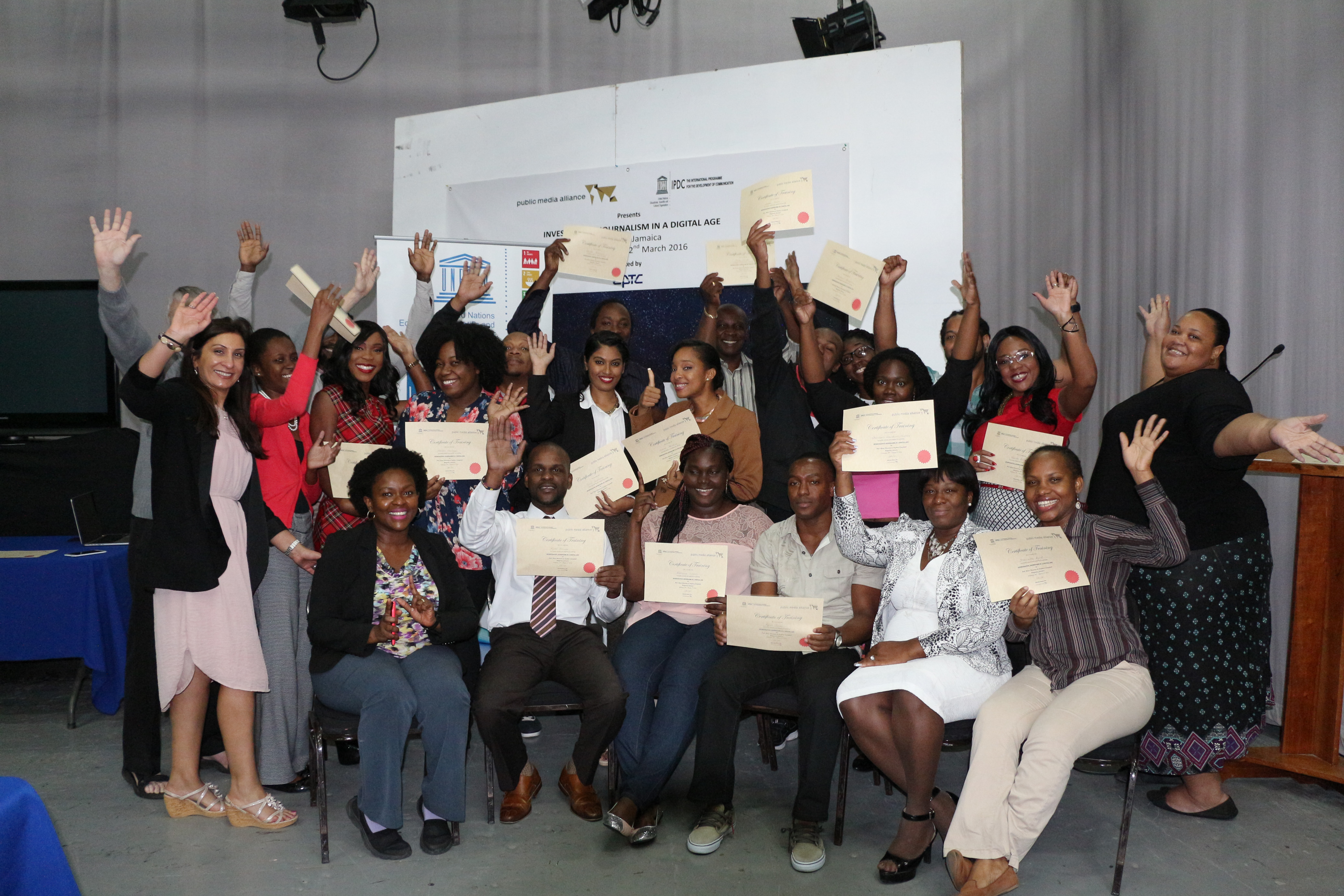 The revolutionary impact of social media on the work of investigative journalists was also a key feature of the high level training.
The revolutionary impact of social media on the work of investigative journalists was also a key feature of the high level training.
Vashan Brown, a reporter/producer for RJR Jamaica said “learning the principles of background[ing] people at the workshop was very useful”
Ravinnie Devi, reporter for Nationwide News Network, Jamaica said “The three day workshop was refreshing. Just when journalism was becoming frustrating and I had thought of quitting “
The workshop covered topics such as environmental databases, use of spreadsheets and numbers, Freedom of Information Acts and data analysis and has been followed by a five week online course, which Prof. Brant Houston launched this week.
The online course will cover the basic steps in investigative stories, the document trail, the data trail, back grounding people, interviewing and cultivating sources and writing and presenting the investigative story.
Read Steffon Campbell’s report about the need for workshops like this the Caribbean.
A selection of images from the workshop
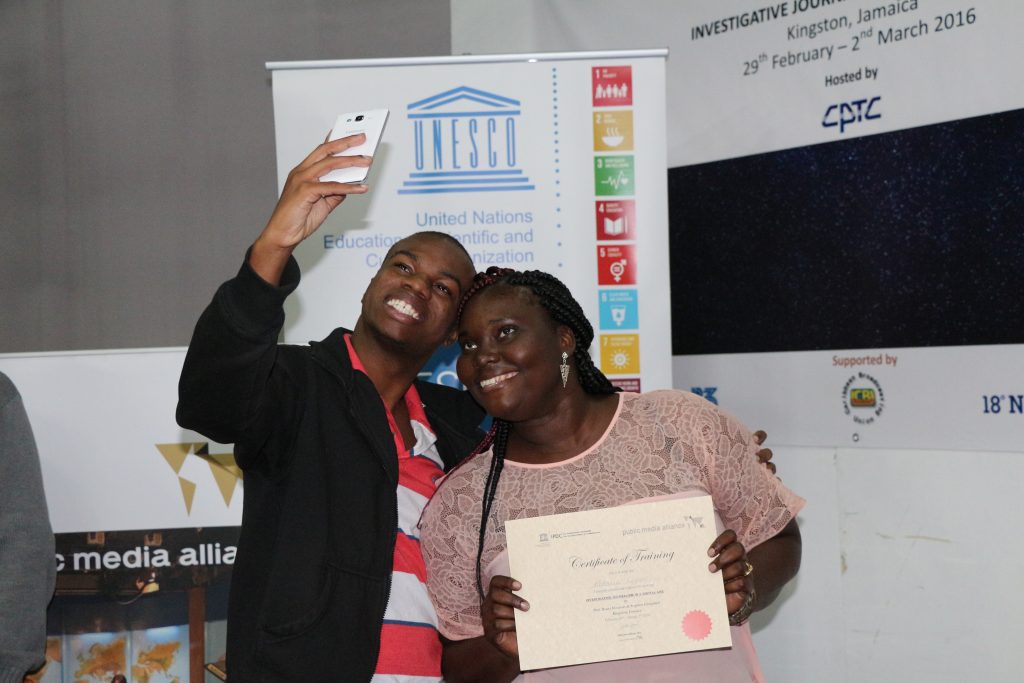
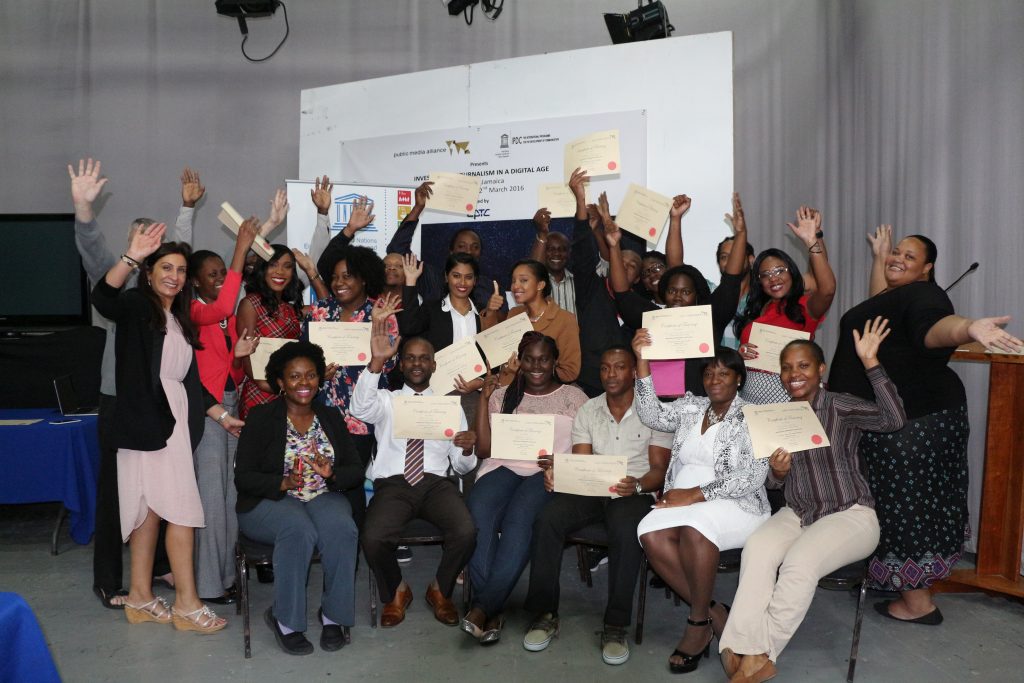
Related Posts
15th February 2016
UNESCO/PMA Investigative Journalism in a Digital Age workshop
We are pleased to announce our upcoming…
28th January 2016
Investigative Journalism in a Digital Age
30th October 2015
